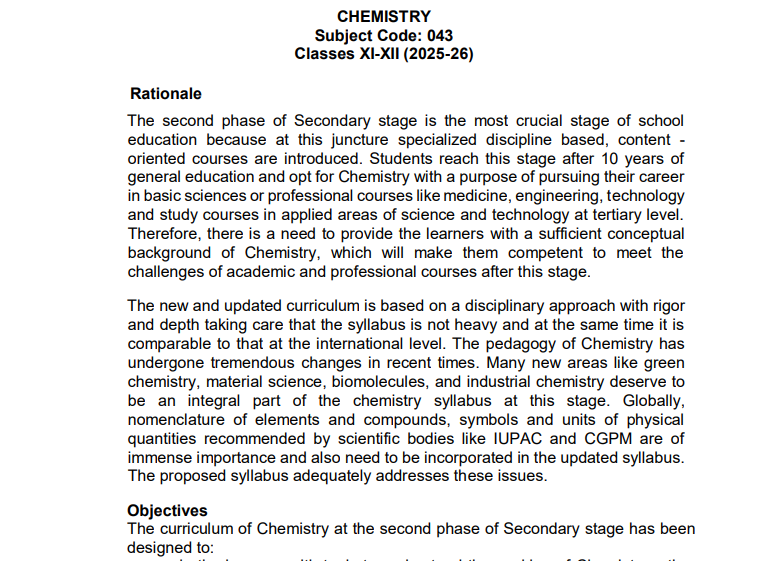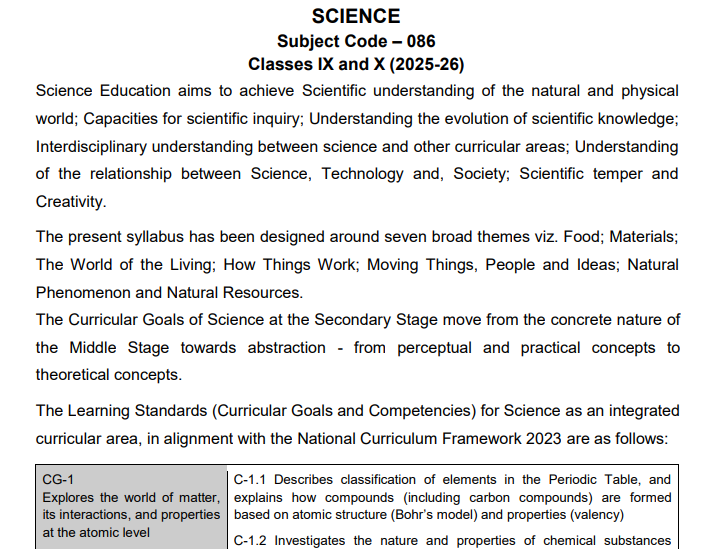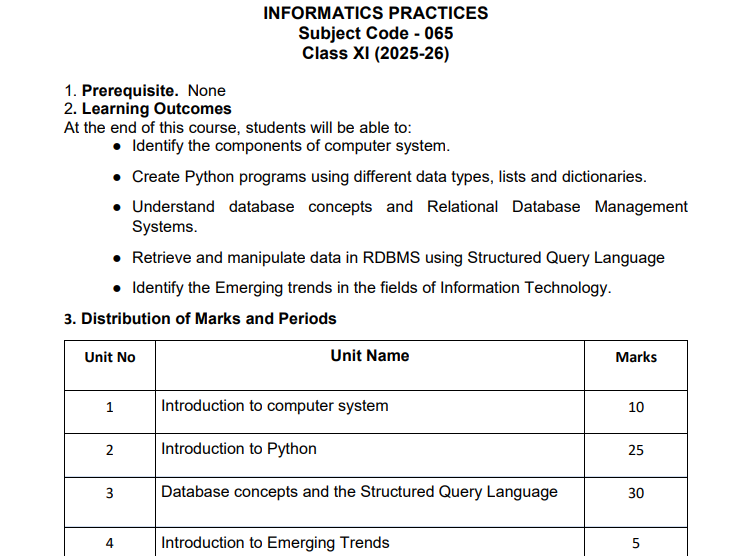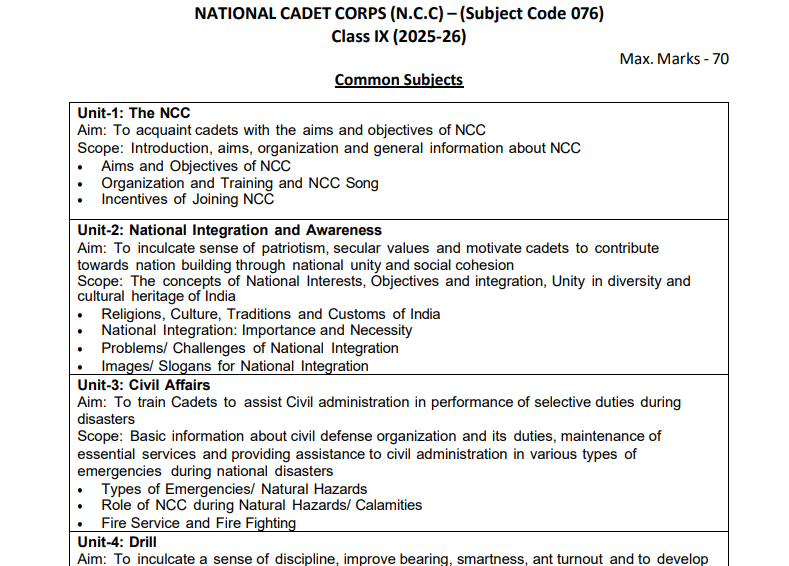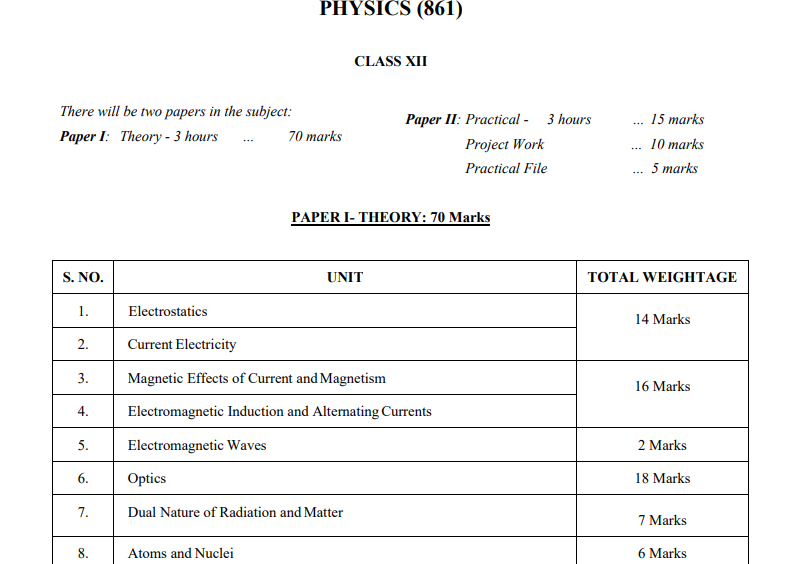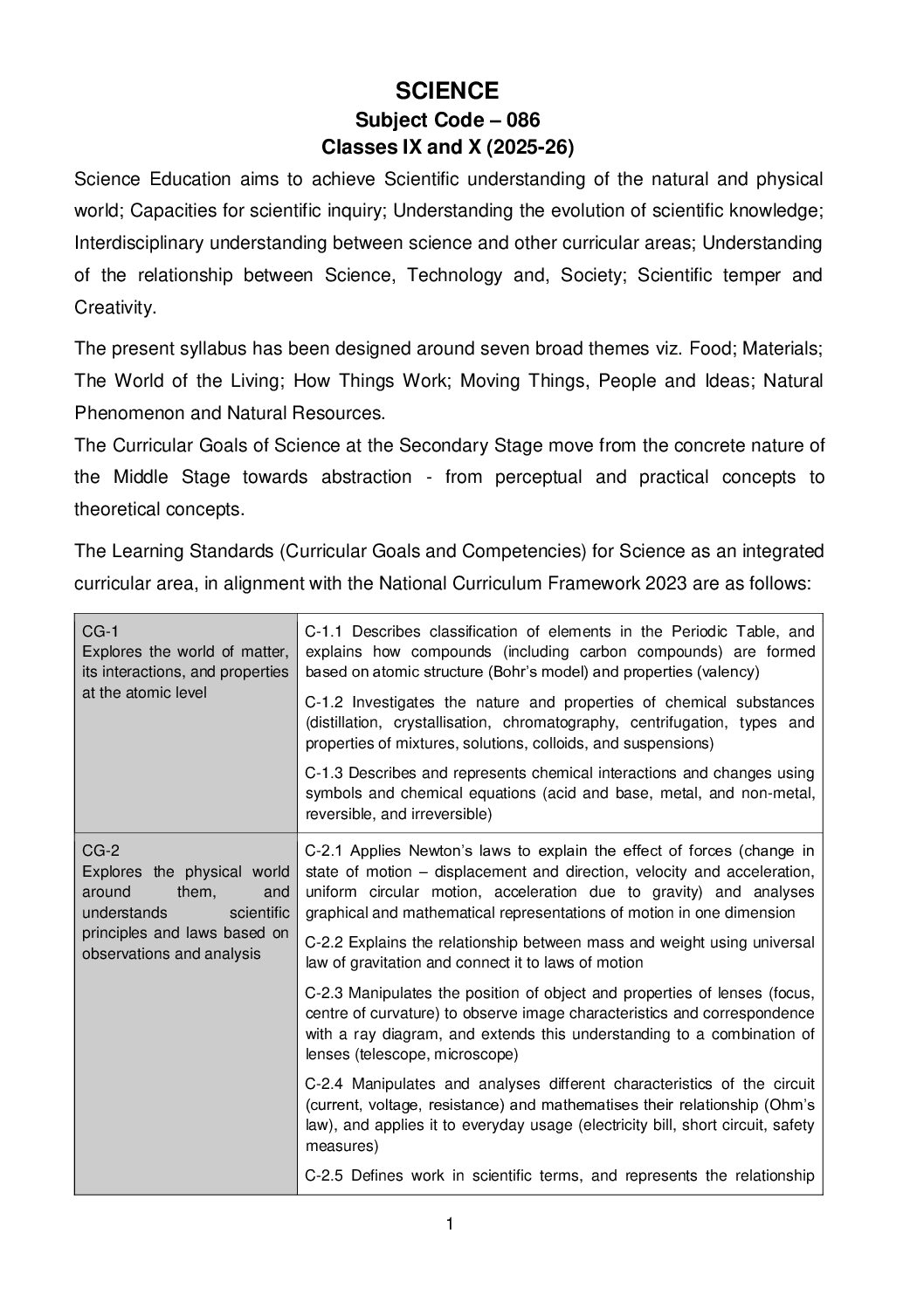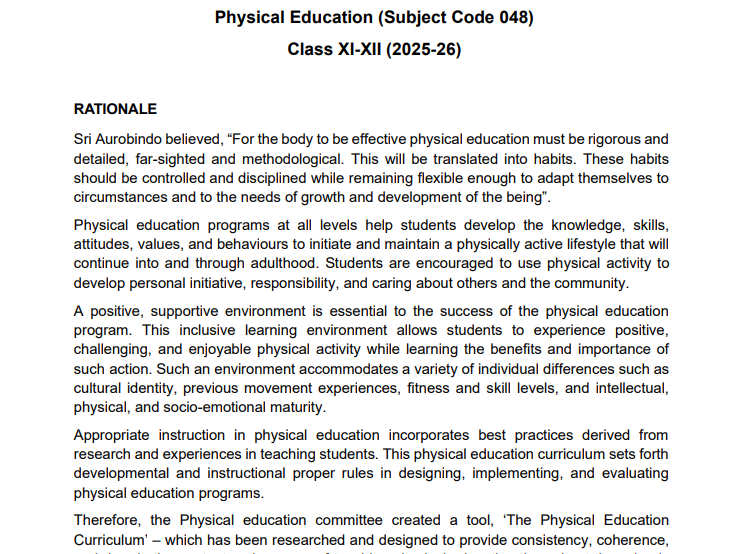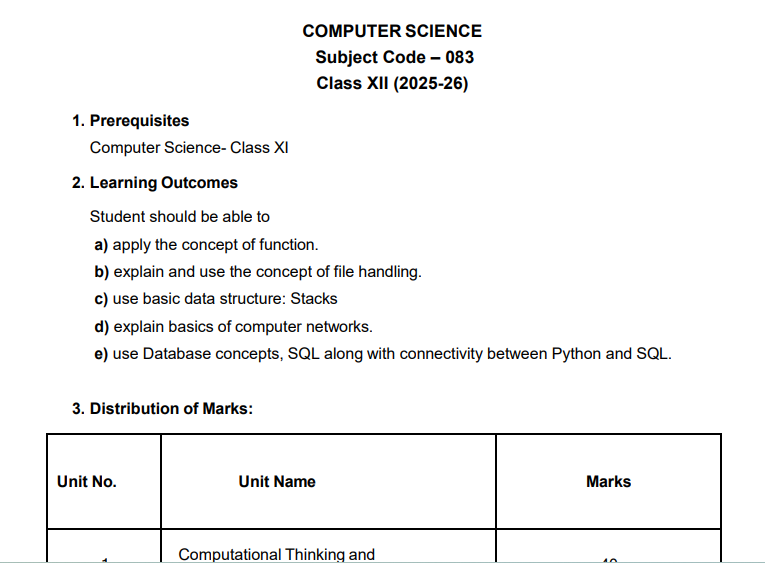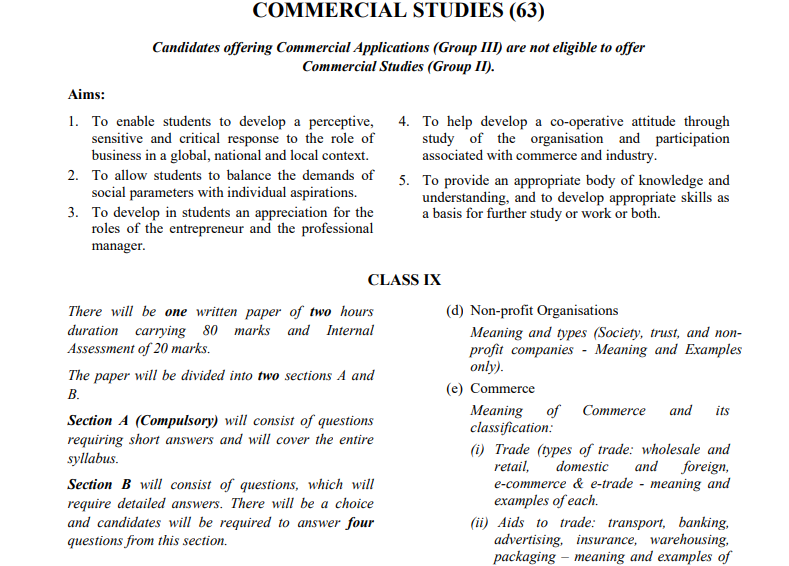CBSE Class 12 Chemistry Syllabus 2025-26, Download PDF
The CBSE Class 12 Chemistry syllabus for the academic year 2025-26 provides students with a detailed framework of topics in physical, organic, and inorganic chemistry, along with practical experiments. The syllabus is designed to help students prepare thoroughly for their board exams. The official PDF of the CBSE Class 12 Chemistry syllabus 2025-26 has been … Read more


